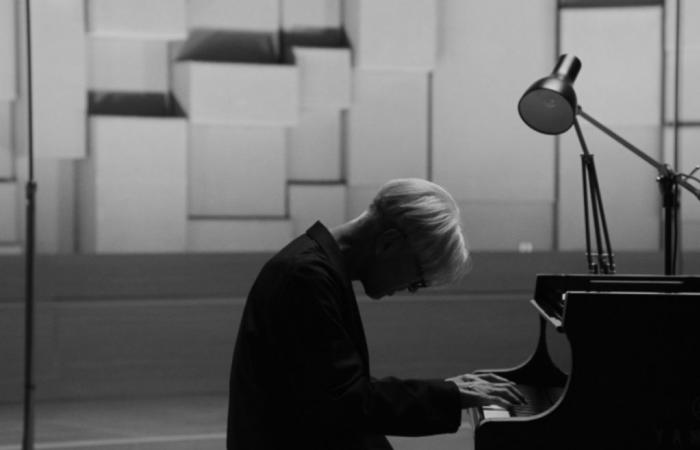One last moment of sharing. A peaceful farewell, watched closely by three cameras, in a studio, the possible windows for a final episode of communication between a composer and those who, for years, came into contact with him, above all, through music. Sitting at the piano, without looking at the clock that, for him, moves in an accelerated direction opposite to the usual progression of the hours, Ryuichi Sakamoto walks between 20 pieces that translate, without a chronological arrangement or even a competing agenda, a look at what has given us to listen to over all these years.
From the memory of the visions released when he was part of the Yellow Magic Orchestra (who remembers “Tong Poo”) to the pieces that made history in cinema by names like Nagisa Oshima or Bernardo Bertolucci, passing through the latest studio albums (“Async” and “12” ) or even debuting pieces never before presented in this format for solo piano (such as “The Wuthering Heights”), Ryuichi Sakamoto shares with us, for one last time, what he has done on so many occasions on record or in the many concerts and recitals he has given . Candor, beauty, great music.
“Opus” is not exactly a concert film (after all, what we see is the result of several days of filming in the same studio, although the editing later creates the suggestion of continuity). It is also not a documentary, although the context, the alignment, and the discreet looks at what else happens beyond the performance (the pauses, a mistake, a hesitation, a word) end up telling a story. It’s not a biography, although an entire life journey passes through the 20 pieces we hear on the piano. However, that’s all it is. And also luminosity, gratitude, recognition, admiration. Filmed (in black and white) by his own son, Neo Sora, Ryuichi Sakamoto physically defeated by the progression of terminal cancer is portrayed here with elegance, admiration and love. The light work transforms the space with each new piece. Silence dialogues with music. The breathing, the details of the gestures, the bench and the piano add dimensions to the protagonist dialogue between the composer and the performer. And we, in the audience, see it. As if it were a last concert.






